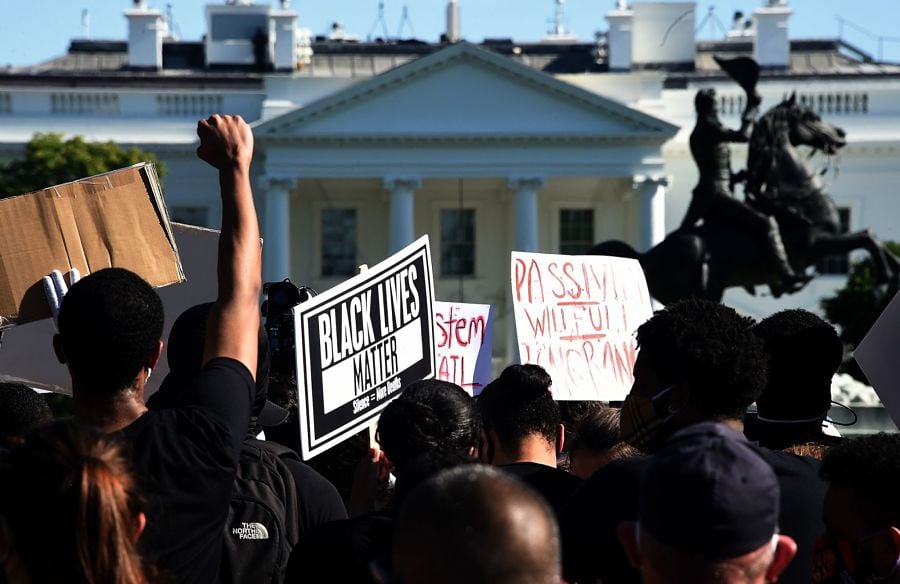

One thing seems clear: 2020 has torn up the script on short-term thinking. COVID-19 and the murder of George Floyd (among so many others) have exposed the long-standing inequities between poor and affluent Americans.
The disparity cuts across Black Americans within every metric. Black Americans are hospitalized for COVID-19 at a rate five times that of white Americans. Black Americans are dying from COVID-19 at a rate three times higher than White Americans. Black Americans are more likely be unemployed than white workers, and if working, more likely to work a front-line job. Black Americans are more than twice as likely to be “food insecure” than the average American. A Black man is also 2.5 times more likely to die at the hands of the police than a white man.
These stark statistics reflect a disparity that underscores issues of systemic racism and the legacy of slavery on American soil.
To recap, the Atlantic slave trade began starting around the 1500s. Beginning in the latter half of the 16th century, kidnapped Africans started arriving in North America. For the next 300 years, the economics and adolescence of the United States was defined by a large enslaved labor force. Three hundred years. Long after the global slave trade ended around the turn of the 19th century, the United States marched on with slave labor within its borders as an economic system.
It was only through a Civil War some 60 years later and an actual amendment to the constitution that conditions changed legally for Black Americans. Even so, the change was almost symbolic. Black Americans endured another 150 years of horror: Reconstruction, organized violence, Jim Crow laws, redlining and displacement by highway, mass incarceration, the school-to-prison pipeline and financial exclusion. There were also restrictions on civil rights that affected voting, buying homes and segregated education. And now, largely as a result of the imbedded inequality in this country, outsized death by COVID-19.
America’s legacy of slavery has been crippling and it should be very clear that systemic racism is real. Change has not happened fast, fairly or significantly enough for Black Americans. This is a human rights crisis right in America’s back and front yard and streamed into American living rooms (apologies to Gil Scott Heron).
Although it represents just one small reflection of American culture, environmental, social and governance investing will push to address this inequality. ESG investors will certainly try to create more diversity on their largely white investment teams and companies. They will also address it in the ESG investment process, which is fine-tuned by social mores. One of ESG investing’s most compelling ideas is to “future proof” portfolios for the world into which we are heading. Hopefully, that world looks very different for Black Americans.
Climate change can provide the road map. It was ESG investors (not Wall Street) that demanded an entirely new dataset to allow investors to measure exposure to carbon, emissions, carbon intensity and -- to a lesser extent-- which companies are participating in a broad effort to reduce carbon emissions. You will see a repeat of this as a result of COVID-19 and the coalescing of the Black Lives Matters movement.
ESG investors might initially focus on these issues:
Even with decades of climate analysts screaming “fire,” it took decades of pressure by ESG investors to convince Wall Street to see the smoke. America suffers from systematic racism. It’s in plain sight. Black and white. It now threatens the recovery from COVID-19, economic long-term growth and the well-being of the nation. ESG investors will likely lead the charge to address these issues on the investment playing field. It will be one small part of what needs to be a huge effort to stem economic inequality in America and the abhorrent disparity in experiences between Black and white America.
Blaine Townsend is executive vice president and director of sustainable, responsible and impact investing at Bailard Inc.

Former Northwestern Mutual advisors join firm for independence.

Executives from LPL Financial, Cresset Partners hired for key roles.

Geopolitical tension has been managed well by the markets.

December cut is still a possiblity.

Canada, China among nations to react to president-elect's comments.
Streamline your outreach with Aidentified's AI-driven solutions
This season’s market volatility: Positioning for rate relief, income growth and the AI rebound
